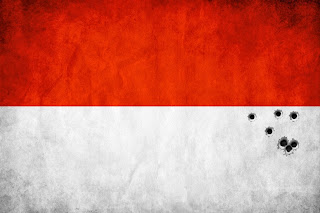Government says executions are needed to contain national drug emergency
The Jesuit head of the Jakarta-based Driyarkara Education Foundation has strongly criticized the government's use of the death penalty, saying that life always must be protected.
"There's an ethical belief, which is very basic, that someone else's life is holy and sacred. Therefore, no one has the right to take away someone else's life," Jesuit Father Franz Magnis-Suseno, a philosopher, said during a Dec. 10 symposium in Jakarta.
The German-born priest said nothing can justify the killing of another human being. "The only one who can take away people's life is the creator, which is God himself."
Indonesia has executed 27 people since 1999. No executions were carried out between 2009 and 2012. However this year, the administration of President Joko Widodo has executed 14 people, including 12 foreigners on drugs charges.
According to the government, the death penalty is a necessary deterrent in containing a national drug emergency.
There are at least 121 death-row prisoners still waiting to be executed in Indonesia, according to Amnesty International, citing figures from Indonesia's Law and Human Rights Ministry. These include 54 people convicted of drug-related crimes, 2 on terrorism charges and 65 of murder.
Patricia Rinwigati Waagstein, chairwoman of the Association of Southeast Asian Nation's anti-death penalty campaign, lamented the government's use of the death penalty to minimize crimes.
"A punishment, whether it's heavy or light, cannot be made an indicator of an increase or a decrease of crimes," she said.
Therefore, she added, "such an argument is invalid."
Waagstein, who is also a professor of law at the state-run University of Indonesia, said that Indonesia - as a member of ASEAN - should be a role model for other member states with regards to a moratorium on the death penalty.
Haris Azhar, who coordinates the Jakarta-based Commission for the Disappeared and Victims of Violence, said that the death penalty was "not punishment, but revenge."
"In fact, the law doesn't aim at making perpetrators feel the crimes that they do to their victims," he said.
Agustinus Benny Sabdo Nugroho, executive director of the Respublica Political Institute and author of the newly released "Politics of Law on the Death Penalty," said the Inonesian government uses the death penalty for "political means."
"For example, President Widodo uses the death penalty to show people that he's strict," he said.
Source: ucanews.com, December 11, 2015










